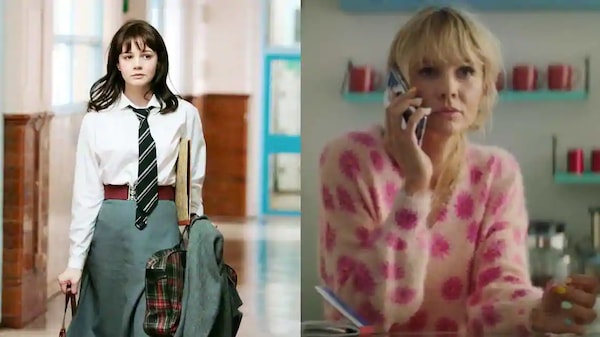'I've been waiting': 'Promising Young Woman' and 'An Education'

- Uday Bhatia
LiveMint
Last Updated: 10.58 AM, Aug 11, 2021
Just under an hour into Emerald Fennell's Promising Young Woman (2020), Cassie, played by Carey Mulligan, knocks on a door. We don’t know whose home it is, but we do know that she's tracking down all the people responsible for the rape and subsequent suicide of her best friend, Nina, when they were in medical school. She’s already exacted complicated revenge on the dean of the school and the classmate who shunned Nina when she asked for help. Behind the door will likely be her next target.
It opens, and we see a heavyset man with a grey bread, played by Alfred Molina. He doesn’t recognize Cassie, and asks if he can help her. “I’m no longer practicing the law if that’s what you came for,” he says. “It’s not about that,” she replies with a wintry smile. “I’m afraid it’s your day of reckoning.” His face falls. “I’ve been waiting,” he says.
Inside, Cassie gets to the point: Jordan Green, then a practicing attorney, helped get his client, another one of Cassie's batchmates, off the hook by attacking Nina on the stand. Instead of denying his role, Green appears almost relieved to be confronted, saying, “Have you come here to hurt me?” Cassie asks if he wants that. “I think so,” Greene says. He tells her how they dug up dirt on Nina, how he can’t sleep out of guilt, how he had a psychotic break. He makes a scary lunge towards Cassie, grabs her hands and asks if she'll forgive him. She does, telling him, “Go to sleep.”
It’s a short scene, and the last we see of Molina till the final montage. Both actors play it beautifully, but there’s an emotional tug that would not have been there had someone other than Molina been cast. Twelve years ago, he played father to Mulligan in Lone Scherfig's An Education, in which she’s a schoolgirl named Jenny in early '60s London who's seduced by an older man. There’s a beautiful scene in that film, after the relationship has dissolved, with a distraught Molina outside his daughter's room at night. He apologizes, in a halting manner, for letting the posh David (Peter Sarsgaard) prey on their class inferiority, enlisting them in his deception of Jenny.
The casting of Molina in Promising Young Woman as a figure of authority who lets down a young woman played by Carey Mulligan and is wracked with guilt seems too specific to be a coincidence. When Green says “I’ve been waiting”, it’s almost as if he’s been looking to make things right since An Education, where his character can offer nothing but remorse. In Fennell’s film, Greene can help—and he does. It’s a great instance of metatextual casting, the sins of one character informing the guilt of the other in the mind of the viewer.
There are other crosscurrents between the two films. Jenny in An Education is the definition of a promising young woman: 16, talented, bright, on her way to a richer life. When Cassie describes Nina, it’s in exactly these terms. But unlike Jenny, who emerges from her relationship wiser and sadder but not physically harmed or traumatized, Nina can't cope with her ordeal. Her death derails Cassie, who spends days working in a coffee shop and nights going to clubs, pretending to get blind drunk, going home with strange men and waiting for them to make a move on her.
Though hardly alike—An Education is a life-size drama, Promising Young Woman flamboyant and provocative—both films have a deep understanding of how societal and familial structures fail to protect young women, whether from relatively benign men like David or the kind Nina and Cassie encounter. Jenny’s friends, teachers and parents all know about the relationship, but do little to stop it (“Silly schoolgirls are always getting seduced by glamourous old men, but what about you two?” she asks her parents). Similarly, Nina is let down by the other students, the university and the law. Tellingly, the romantic leads in both films, Sarsgaard's David and Bo Burnham's Ryan, are revealed to be hiding a damaging secret—charm is not a reliable guide to character.
Promising Young Woman is a product of the #MeToo era. One can glimpse details of publicized cases in the toxic men Cassie meets—there’s a lot of Brock Turner, the Stanford athlete who raped an unconscious woman in 2015, in Nina’s assailant (who gets his comeuppance, though the manner in which he does has been hotly debated). By casting comics and former teen idols like Adam Brody as random toxic men, Fennell crafts a uniquely uncomfortable viewing experience. An Education is gentler, on the viewer and on David. Had the film been made today, it might have been starker in its framing of predation. Promising Young Woman, though, doesn’t leave anything between the lines. The challenge to the viewer is made clear early on, when Mulligan looks straight at the camera and asks: “I said, what are you doing?”
